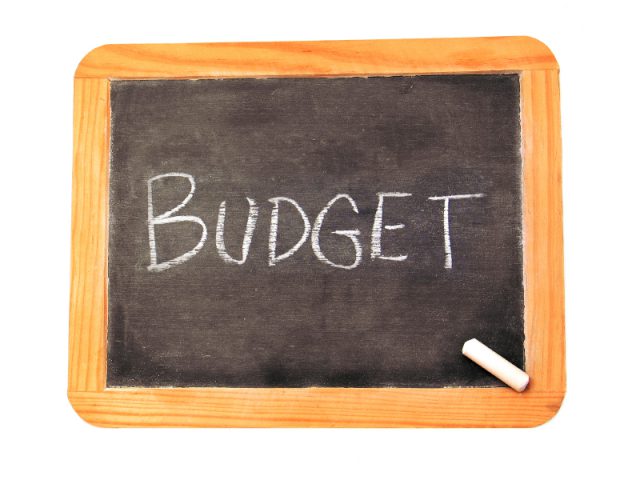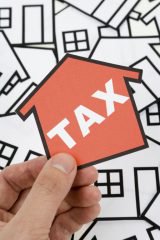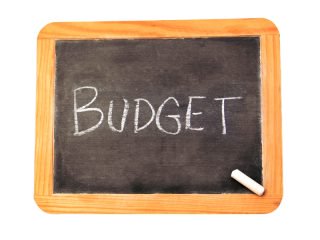Thousands of buy-to-let landlords will see their profits drop after Chancellor George Osborne announced a crackdown on mortgage interest tax relief in the Budget yesterday.
According to the Chancellor, the measure will “level the playing field for homebuyers and investors”. The amount that landlords can claim as tax relief will be set at the basic rate of tax, which is currently 20%.
The change will be introduced over a four-year period, starting April 2017. Currently, landlords can claim tax relief on monthly interest repayments at the top level of tax they pay – 45%.
A freedom for information request revealed that mortgage interest relief costs around £6.3 billion per year.
The change will affect those with a single buy-to-let property right through to professional landlords with huge portfolios.
Some experts believe this move could force landlords to push rents up to compensate for their losses, which would greatly disadvantage tenants.
However, it could benefit first time buyers, who compete with landlords for property. The housing market is currently suffering a case of demand outstripping supply.
Additionally, the measure arrives as the Bank of England (BoE) revealed it will be monitoring the booming buy-to-let sector in the coming months. This year, buy-to-let lending has accounted for over 15% of all mortgages.
It was also announced after the National Landlords Association (NLA) warned that costs in the private rental sector could increase by £2.6 billion if mortgage interest payments are made non tax-deductible.
Experts have claimed that the 45% tax relief puts landlords at an advantage against first time buyers.
The Budget document states: “The current tax system supports landlords over and above ordinary homeowners. Landlords can deduct costs they incur when calculating the tax they pay on their rental income. A large portion of those costs are interest payments on the mortgage.

George Osborne Says Landlords’ Profits Will be Cut
“Mortgage interest relief was withdrawn from homeowners 15 years ago. However, landlords still receive the relief.
“The ability to deduct these costs puts investing in a rental property at an advantage. Tax relief for finance costs is particularly beneficial for wealthier landlords with larger incomes, as every £1 of finance costs they incur allows them to pay 40p or 45p less tax.”1
George Osborne says that he wants to support homeowners, but “act in a proportionate and gradual way.”1
However, one expert cautions that some investors may now struggle to make a profit. Deloitte’s Phil Nicklin, points out: “This measure will almost double the effective cost of borrowing for a taxpayer on the highest rate of tax.
“Currently, interest payments of £100 only cost £55 after tax relief, but will cost £80 from 2020. A landlord who borrows at even a modest level might end up paying more in tax than he makes in profit.
“This measure must make buy-to-let investment a less attractive proposition in future and may reduce the options for those who see it as an alternative to a pension.”1
Director of Mayfair-based mortgage broker Anderson Harris, Adrian Anderson, comments: “There had been fears among landlords that tax relief on mortgage interest payments for buy-to-let landlords would be completely abolished, so while the changes will hit higher-rate taxpayers, it is not as bad as it might have been.
“It is only fair that there is a more level playing field between first time buyers and landlords, but if this tax break had been completely withdrawn, buy-to-let would have been far less attractive to investors.
“Thousands of landlords may well have struggled to keep up repayments on their mortgage or struggle to pay the tax, especially when interest rates rise.”1
Manager at Blick Rothenberg Chartered Accountants, Robert Pullen, says: “Buy-to-let landlords are now being hit further by a restriction to tax relief on mortgage interest payments.
“The new rules appear complex; basic rate tax relief is permitted only and will be phased in. This may result in a shortage of let properties, or an increase in rental rates charged to compensate landlords.”1
Head of UK Residential Research at estate agent Knight Frank, Gráinne Gilmore, states: “This is a significant change in tax status for those with a rental portfolio, although the measured rate of introduction between 2017 and 2020 will help landlords plan their approach.
“Those planning to purchase a buy-to-let property will have to factor these new rules into their calculations and this could affect the offers they are willing to make.
“If the relatively low yield environment seen today, especially in the South of England, is still evident when these changes start to come into force, there could be upward pressure on rents.”1
The Budget document also reveals that the current system that allows landlords to claim 10% of their rent for wear and tear will be abolished. From April 2016, landlords will only be able to deduct costs that they actually incur.
Additionally, the Chancellor announced an increase to the amount homeowners can earn in rent from lodgers before being charged tax. This arrives after many have campaigned for a higher earning level in the rent-a-room scheme.
For the last 18 years, the level has been £4,250 of income, but will rise to £7,500 from April 2016.
Director of SpareRoom.co.uk, Matt Hutchinson, who has campaigned for this for the past six years, explains: “There are an estimated 19m empty bedrooms in owner-occupied properties in England alone.
“Freeing up just 5% of those rooms would accommodate almost a million people – the equivalent of a city the size of Birmingham.
“Encouraging people to take in lodgers could help them avoid repossession when interest rates rise and their mortgage repayments are adjusted.
“The threshold has remained unchanged at £4,250 for 18 years. Only a fifth of UK towns and cities have average room rents of below that mark, while all rooms in London are way outside of the threshold.”1
1 http://www.thisismoney.co.uk/money/buytolet/article-3153541/Profits-slashed-wealthy-buy-let-landlords-Budget-crackdown-mortgage-tax-relief.html











